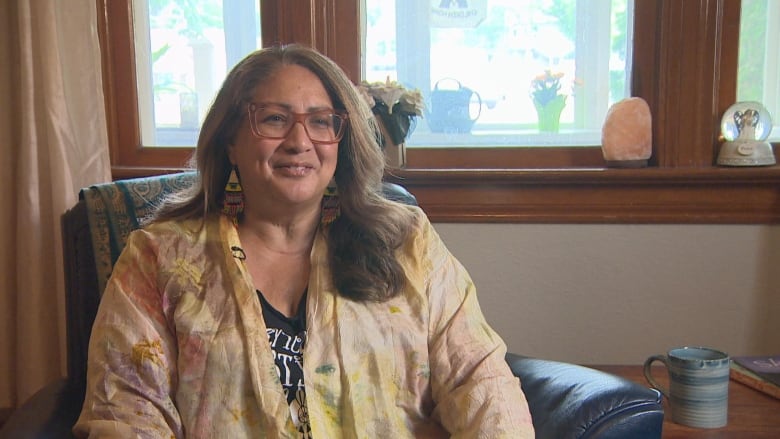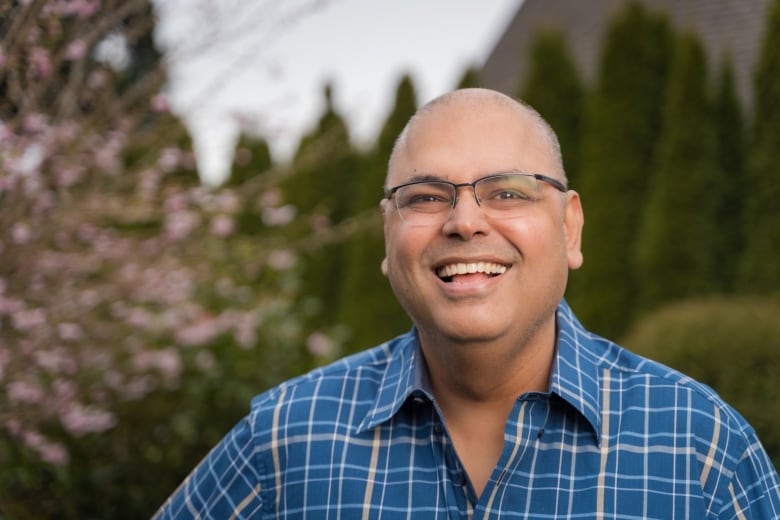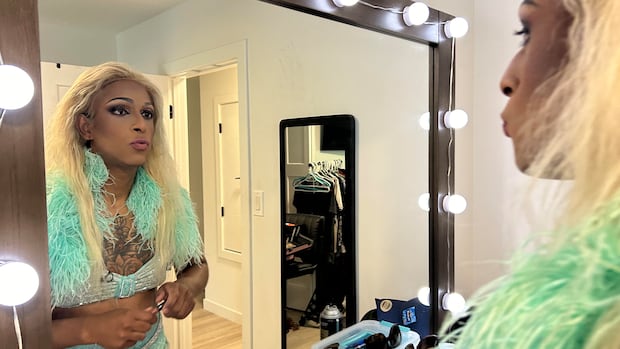Jaideep Singh knows not to tell people in the Punjabi community that he is gay, as that is often met with ridicule, disdain or the threat of ostracization. It’s an experience other 2SLGBTQ+ members say is common in newcomer communities.
“It’s been really hard. In the community, to be queer, is really challenging,” the 24-year-old said.
“Sometimes, I don’t really feel like a part of the community because there’s no space for being queer.”
In a scan of Facebook and other social media groups with mostly newcomers, CBC saw posts from a few members sharing homophobic and transphobic messaging.
A woman posted multiple times in one Regina group, discouraging members to send their kids to school for Pride-related activities. In another group, a member asked people not to attend a Pride parade.
One newcomer, who had earlier voiced their support of the Saskatchewan government’s pronoun bill — which makes parental consent required before a child under 16 can use a different gender-related name or pronoun at school — declined to be interviewed, asking “why anomaly should be celebrated.”
Singh noted that some group members post daily.
“Not a couple but a lot of such posts on community pages. There are some people posting really homophobic views and hatred towards queer people,” Singh said.
The Saskatoon resident said he feels scared at times of losing friendships due to his identity.
He said that in the Punjabi and wider Indian community, men showing feminine characteristics are belittled.
“They don’t see them as a man and make fun of them or make them feel not human, or treat them really differently,” he said.
Cultural shaming and stigma persist
For these reasons, Tahmid Esham said he distanced himself from his Bangladeshi community and the wider South Asian community in the city.
When he started doing drag in 2018, Esham said bringing Bollywood culture to the stage under the name Shonali was embraced.
“However, the saddest part is it was not really as accepted in my own community,” he said.
“There won’t be a single soul you would find in the audience who would be from South Asia to come support me even though they would know about it.”
Growing up, he attended many folk festivals and cultural events where he would sing and dance “as a boy” but he said the Bangladeshi community would neither “understand nor acknowledge” his drag persona.
Saskatoon’s Tahmid Esham started doing drag in 2018, but he says he distanced himself from his Bangladeshi community and the wider South Asian community as he never felt accepted for his identity. He says as more newcomers make Canada their home, more education and awareness around 2SLGBTQ+ culture is needed.
Esham, 28, said there is cultural shaming in many immigrant communities where drag is “confused with being transgender.”
He says as more newcomers make Canada their home, more education and awareness around 2SLGBTQ+ culture is needed
“My goal in drag honestly right now would be if I can inspire one South Asian kid to take my footsteps and do drag themselves. If I find even one, that would be most accomplishing to me,” he said.
“The new immigrants that are coming in Saskatoon are coming in with the mentality that whatever culture they grew up with back home, they’re going to impose it onto their kids as they come to Canada.”
Esham said that resettlement organizations can play a key role in spreading education by providing awareness around 2SLGBTQ+ culture, in addition to helping newcomers with English classes or getting employment and housing.
Regina artist works to connect 2 worlds
Kris Alvarez, a Filipino artist, is an ally of the queer community who last week organized Pinoy Pride to connect drag and queer artists with newcomers and other members of the Filipino diaspora in Regina.
She said she doesn’t spend her time on hateful vitriol and instead prefers using her art to invite people who are eager to learn.
“What I do see are the people who I think are on the fence or are wondering or are still trying to figure out what they feel or think about big issues like race, culture, gender and queerness,” she said.
“There will always be hate and there will always be love. I concentrate on love.… As a Filipina and a first generation immigrant, I have grown up noticing that big concepts like mental wellness, race, gender, sexism, some of them are still quite taboo in our community.”

She said she uses humour, art, storytelling and even food to connect with people from the other side of the conversation.
“Because it feeds everyone’s comfort and not just their bellies — that’s how I like to approach this kind of what I call bridging work through art.”
‘Trying to increase visibility’
Alex Sangha of Sher Vancouver, an organization that caters to 2SLGBTQ+ South Asians, said the rise of transphobia and opposition to sexual orientation and gender identity curriculum across Canada is concerning.
“It’s very unfortunate. It’s creating unsafe spaces. A lot of queer people are feeling not safe,” he said, noting immigrant populations are at an even higher risk of social isolation.
“A lot of newcomers are dealing with internalized homophobia, and they haven’t fully accepted themselves. They’re very scared to come out to their families, afraid of being disowned, being rejected. Some of them are forced into marriages against their will.”

Sangha said more organizations like his are needed in Canada to better inform the newcomers as they produce films, blogs, podcasts and hold events within the South Asian community in Metro Vancouver.
“We’re trying to increase visibility. We’re trying to educate and create awareness in the community about these issues,” he said.
“The key is education.… We are one of the very, very few in Canada that are supporting queer South Asians and their allies.”
More queer health-care organizations and more agencies with a focus on social service and culture are needed, Sangha said.
“We’re constantly fighting for our rights,” he said. “If we don’t have more organizations like ours, we are at risk of having our rights taken away.”




